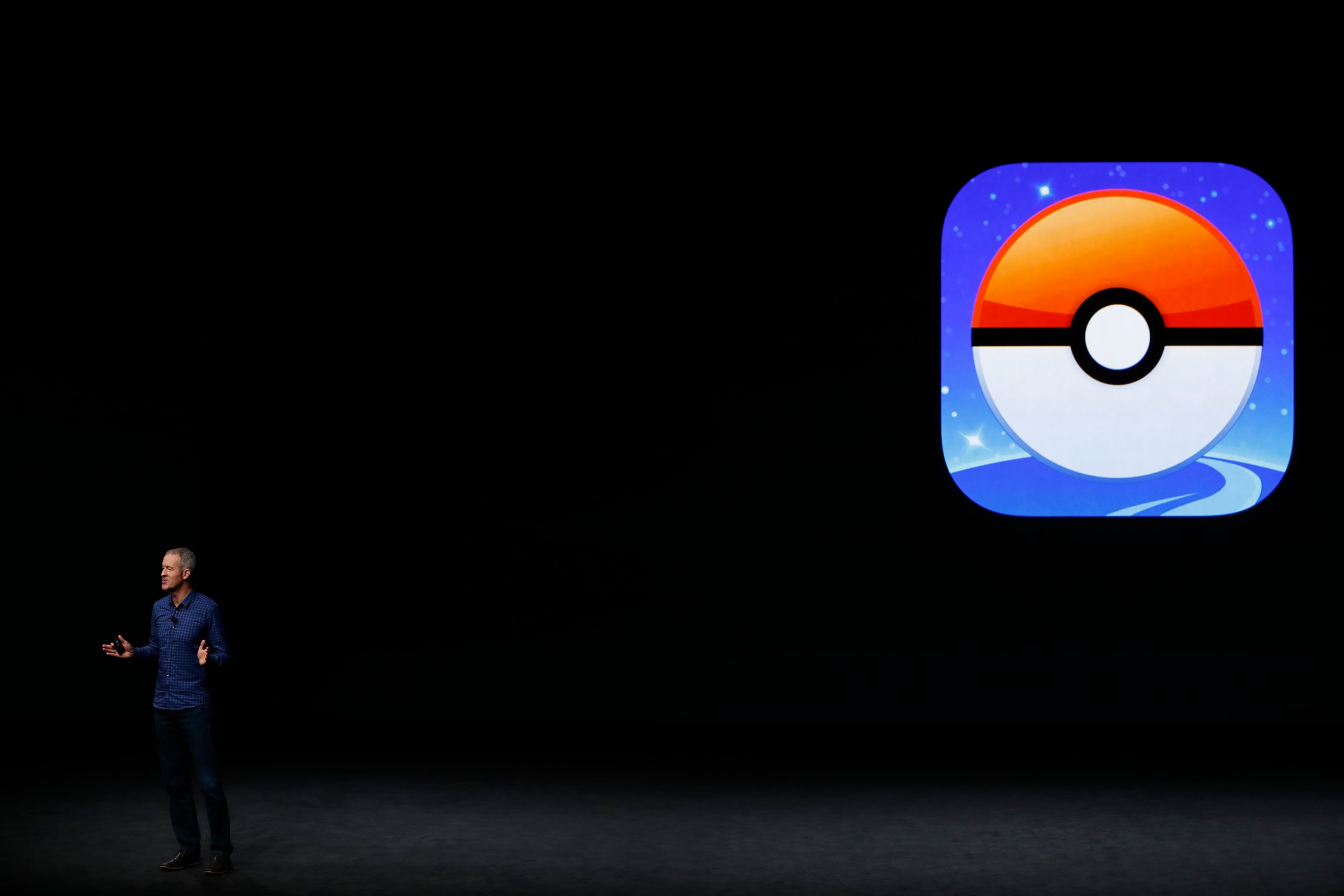
Thanks to the leaks and rumors that typically emerge months before Apple’s high-profile product unveilings, it’s easy to argue the company’s events no longer have any surprises in store. Indeed, most of the big announcements at Wednesday’s iPhone 7 launch — its improved camera, its water resistance, its lack of a headphone jack — were pretty much known before things got underway in San Francisco. Yet there were two announcements that nobody saw coming: Super Mario’s debut on the iPhone and Pokémon Go’s launch on the Apple Watch.
Mario’s arrival on the iPhone is a sign that Nintendo is getting serious about smartphones as it faces tough times with its own hardware. The latter, meanwhile, is an especially smart move that takes advantage of both the Apple Watch’s capabilities and Pokémon Go’s unique gameplay.
At its core, Pokémon Go is a game about movement. Players must walk and explore different areas in the real world to capture new creatures. The game logs the distance a player walks while using the app; the game then rewards players for their movement with new Pokémon.
But right now, there’s no way to integrate the game’s walking data into the various iPhone health apps that can tell you about the number of steps you’ve taken or the calories you’ve burned throughout the day. The Pokémon Go Apple Watch app addresses this by letting you log gameplay as a workout, integrating a calorie counter directly into the experience. For a game that requires players to move around, and given Apple’s recent focus on healthcare, this seems like an obvious addition.
Meanwhile, the Apple Watch app should help keep Pokémon Go players more alert, cutting down on headlines about gamers wandering into traffic or crashing into poles. Users will be alerted when Pokémon are nearby waiting to be caught, while they can also grab in-game gear from special real-world locations called PokéStops without opening their phone. It’s a prime example of the promise of smartwatch apps: Done well, they can free us up from feeling like we need to constantly keep our faces glued to our phones. (For those without an Apple Watch, the company behind the Pokémon Go is also working on a game-specific accessory with similar benefits.)
A major criticism of smartwatches so far is that they lack a “killer app” to justify their typically high cost. To be sure, Pokémon Go isn’t likely to persuade anyone to drop a few hundred bucks on an Apple Watch. But it at least shows how developers can bring games to these devices in creative ways, leveraging their unique characteristics rather than porting over pint-sized clones of smartphone games.
More Must-Reads from TIME
- Inside Elon Musk’s War on Washington
- Introducing the 2025 Closers
- Colman Domingo Leads With Radical Love
- Why, Exactly, Is Alcohol So Bad for You?
- The Motivational Trick That Makes You Exercise Harder
- 11 New Books to Read in February
- How to Get Better at Doing Things Alone
- Column: Trump’s Trans Military Ban Betrays Our Troops
Contact us at letters@time.com